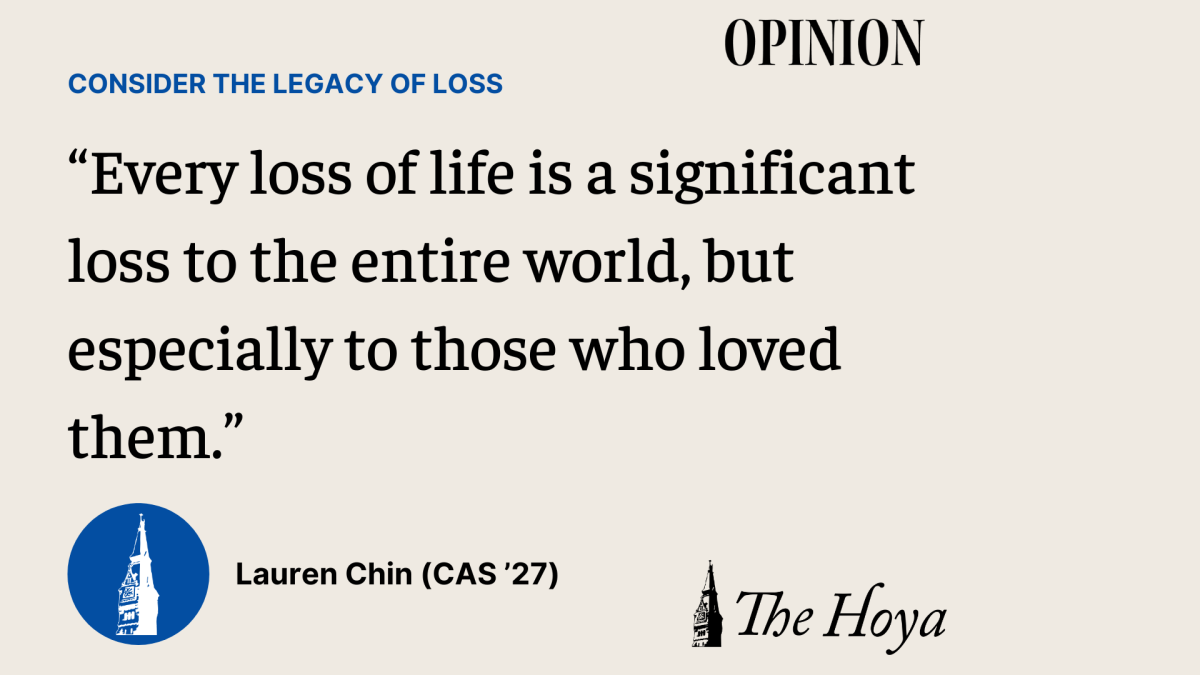I’ve only been to one funeral in my life. I was two or three at the time. I’m told that my Aunt Wan-Ching loved playing with my sisters and me; in the few videos we have, she is always with one of us. Whenever we see a cat, we think of her, because she loved cats and would feed strays from her home in California. I wonder what kind of relationship we might have had if she were still alive. Like my sister and I, she too was queer. What kind of guidance and wisdom could she have imparted to us? As the oldest of her siblings, what could she have told us about her time in Taiwan?
Before the COVID-19 pandemic, my maternal family would visit my aunt’s final resting place, a temple, about twice a year. We bowed three times to Buddha statues, holding incense sticks in our hands. My mother and grandmother cleaned the small black plaque engraved with my late aunt’s name. My uncles and grandparents brought fake paper money embellished with silver or gold squares. We burned them in a fire pit so that my aunt could use these gifts as real currency in the afterlife. My sisters and I also burned letters, updating our aunt on what was going on in each of our lives. Before returning home, we left behind small snacks, fruits and flowers, both as donations toward the temple and so my aunt would have something to eat.
My paternal family, who immigrated from Taishan, China, practices similar traditions when honoring their dead. My grandfather stokes a small fire in his kitchen, igniting stacks of paper money in the flames. Meanwhile, my grandmother sets a table entirely for the dead, allowing them to eat before the living members of the family do. As with my mother’s family, we bow three times before these plates of food. However, rather than sticks of incense, we instead hold small cups of alcohol, which are then also later offered to the deceased.
As I reflect upon these practices, I wonder who in my family will continue them after our older relatives are gone. My parents and their siblings have lived in the United States since the 1980s, moving when they were in middle school. My cousins, sisters and I barely speak Chinese — only two of us, my older sister and eldest cousin, attended Chinese school. Three of my cousins are Christian and another three are Jewish. These cultural differences already conflict with the traditions proposed by Chinese customs. I wonder who will burn the fires for my grandparents and offer them food during holidays that I don’t even know about.
Traditionally, this role would fall to my oldest sister, as the oldest grandchild on both sides of the family. I’m sure that the rest of my generation will also participate to some extent. But I wonder how long these practices will last. I wonder how long I will continue to visit the graves of people I’ve never met, people whose language I do not speak. I question if I am the right person to be tasked with cleaning their graves.
This reality seems more tangible than ever as my maternal grandfather, my Ah-Gong, undergoes chemotherapy for the third time. My two sisters and I are the only grandchildren on my mother’s side; our grandfather’s death will mean a tremendous loss of culture, stories and life. Whenever I visit him, I regret that I’ve never learned Mandarin. He is quite good at speaking English, which shouldn’t be too surprising given that he’s spent 40 years in America, but I wonder what he would say to me if only I could understand his mother tongue. I’m scared that by the time he dies, I’ll only know a fraction of his life.
Every loss of life is a significant loss to the entire world, but especially to those who loved them. In my family, I wonder how much of our culture is lost with each member of the older generation that dies. Most of all, I hope I will be able to honor my ancestors in the ways they want to be remembered.
Lauren Chin is a first-year student in the College of Arts and Sciences. This is the first installment of their column “What We Love and Lose.”




















